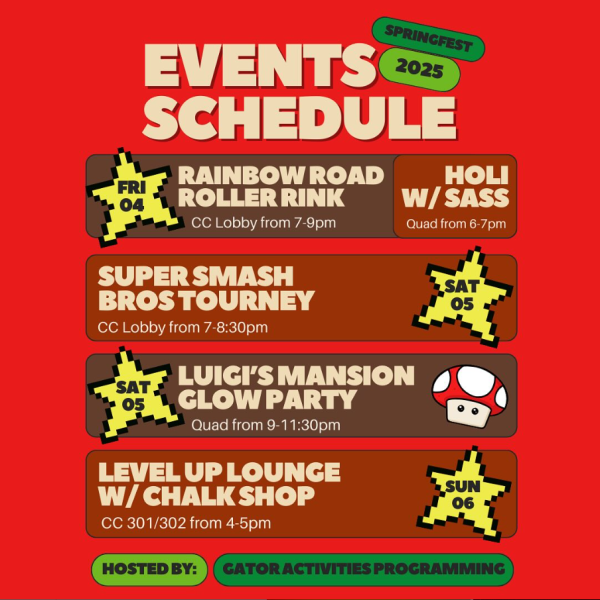Yancy presents lecture on white racism and backlash
George Yancy, Samuel Candler Dobbs Professor of Philosophy at Emory University, presented a talk titled “Black Gift Giving and the Return of White Backlash,” at 7 p.m. Thursday, Nov. 14, at the Patricia Bush Tippie Alumni Center.
Glen Almon, ’22, has studied Yancy’s work since high school. In 2018, he took a class with Bill Bywater, professor emeritus of philosophy at Allegheny, in which he encountered Yancy’s work.
“I read (Yancy’s work),” Almon said. “I loved it. It actually made me want to be a philosophy major, which I am now, and go into critical race studies.”
Yancy’s appearance was sponsored by the Bywater Family Fund for Social Justice programming. Bywater introduced Yancy by comparing him to the famous Greek philosopher Socrates, who was known for questioning powerful people in the ancient Athenian society in which he lived.
“(Socrates) regarded himself as a kind of gadfly,” Bywater said. “He’d go around, speaking truth to powerful people. Or at least raising questions about their view — and often to their embarrassment. George Yancy definitely sees himself in that philosophical tradition.”
Yancy’s talk addressed the philosophical discourse around race in the context of a strand of thought known as “ideal theory.” In particular, Yancy paired the concept of parrhesia, or courageous and candid speech, with the idea of courageous listening.
“Along with courageous speech, or fearless speech, we need fearless or courageous listening, which I see is embodied openness to have one’s assumptions shattered, one’s self fissured,” Yancy said. “To have one’s sense of ethical, epistemological, phenomenological, embodied and affected certainties called into question. To have one’s self touched to the point of vertigo, and perhaps even crisis.”
Yancy stressed the value of unsuturing, a term which he used to describe a radical, painful openness to the everyday contradictions and aggressions in the lives of people of color. For Yancy, considering the finality of one’s death drives home the importance of ensuring life is as just as it can be for everyone in the current moment.
“The point here is that we ought to tarry with our finitude, because this life, this moment, right here, right now, is perhaps all that we have,” Yancy said. “And if this is true, how does it, or how does that truth, move us ethically to think about race, and think about whiteness in there?”
One way in which Yancy saw the impact of racism on his life was summarized in his experiences after a letter he wrote was published in The New York Times called “Dear White America.” The intensity of backlash he received after the letter’s publication led to police being posted in all of his classrooms as a measure of protection.
“For that piece I received tons of white racist hate mail, really vitriolic, vitriolic white supremacist responses, in my university inbox, voicemail, even snail mail,” Yancy said.
Yancy discussed his view of a proposition suggested to him by Theo Shaw, a lawyer who, at one time, was convicted along with five other people for an alleged beating of a woman in Louisiana, a conviction considered to have been racially motivated. Shaw suggested to Yancy that being black in America sometimes felt like being on death row due to what he felt were frequent racially motivated incidents of police brutality.
Yancy’s response was that while these incidents exposed a dark side of American life, there were many smaller, more common aggravations which were just as, if not even more, damaging.
“The examples given here are what I would call spectacular examples of expressed or discursive embodied racism or whiteness,” Yancy said. “Yet there are other subtle forms — the everyday, quotidian forms of embodied whiteness that are still, yet violent and very overwhelming.”
Yancy discussed how traditional philosophy had a problematic relationship with race. For instance, Yancy said philosopher Immanuel Kant believed that all people were born mostly white, but the dumber someone was, the darker their skin became.
“This is the brilliant Immanuel Kant, who believed that when you were born, if you were black, you were born white,” Yancy said. “So me, I was born as white as you at birth, according to Immanuel Kant.”
One way Yancy demonstrates the pervasive nature of racism in modern society is by asking his white students to keep a journal of the racist incidents they experience in their daily lives. He said many students begin this project expecting their journals to be mostly empty by the end of the semester. However, this assumption often proves inaccurate.
“Towards the end of the semester, all of my white students were deeply shocked,” Yancy said. “In fact, by the end of the semester, they had to question their own sense of the synergy regarding the nonexistence of their own white racism. Some came away deeply troubled by the awareness that white racism is front and center within their families, social groups, in their dorms.”
The pervasive nature of white racism led Yancy to develop his central question, which he proposed in the talk.
“So let’s take a risk and pose this question,” Yancy said. “I think this is interesting. What if to be white in North America is to be a racist?” As a follow-up, Yancy asked if an inherently racist whiteness could ever be ethical.
One way in which Yancy sees this dynamic of racism play out is in the differing conceptions of white and African-Americans of their belonging in public spaces.
“I argue that to walk on one’s campus, with that kind of gracefulness, is a form of white that has certain meanings for my life as a form of death,” Yancy said. “So I am arguing that way of being white on a campus means that white people are taking the oxygen out of the air and that black people can’t breathe, that people of color can’t breathe.”
While Yancy said he mostly steers away from overly facile solutions, he said that for him, the most effective way to fix racism is for white people to dramatically confront fundamental contradictions in society.
“If black lives really matter to white people, I desire to see white people explode,” Yancy said. “To see their white rage turn against their white power and their white duplicity and their white dependency. I would like to see their white rage overflow in the streets of this nation, shouting that black lives matter, or rather yet, shouting white lives have mattered for far too long.”








